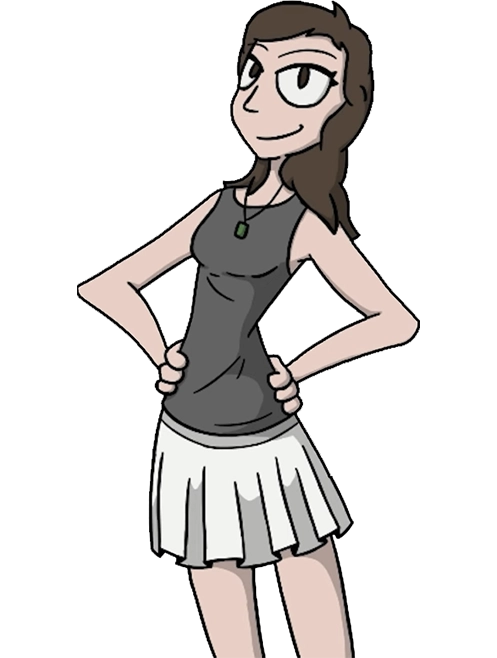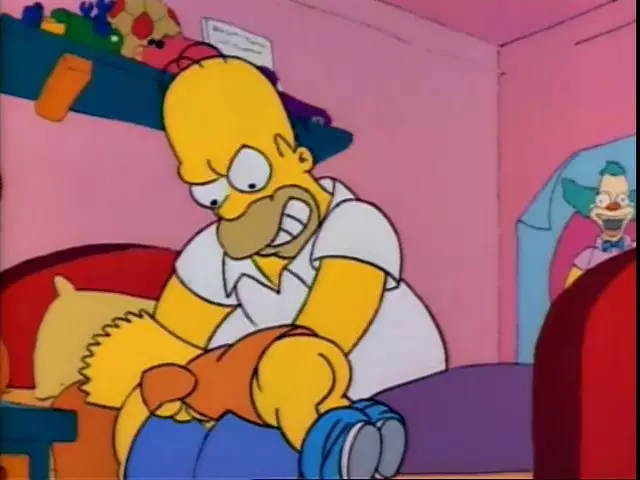My Recollection.
Sushi. Skilled hands. Homer is dying but doesn’t.
Most tourists fear being killed in a radioactive explosion but I know such fantastical energy beams will only make me stronger. It was because of this that I decided to continue with my then lady-friend’s plans of going to Japan in spite of the then 3 month old Fukushima thing. Tickets are really cheap when you buy them 6 months early and I wanted to embrace my fate as GABERA: KING OF MONSTERS.
There are whole industries, and many small businesses besides, that are dependent on tourists and the atomic exodus had them all feeling a pinch. This made a lumbering Australian monstrosity and his small English girlfriend the equivalent of walking gold. I was at the Lawnton show as a kid, a kind of sub-ekka suburban fete that had some carny crap and D level rides, and there was a particularly aggressive spruiker my brother, cousins, and I dubbed The Sucked-In Man. He was at the front end of sideshow alley and would spring out of his little hut of novelty bullshit at the first sign of eye contact to talk you back into spending a dollar at his disco-fantastic misery alcove. Restaurants have a kind of sophisticated version of these lures. Japanese restaurants, when they haven’t had a customer in a while, have a potent combination of the two. The peak of these, the far more terrifying, are the Grandmas.
The Sucked-In Man was an adult male. The only access he had to the kinds empathy these road charlatans exploit was through the sheer tragedy of his predicament. But his was a tragedy too far. Like a cancer riddled child riding painkillers to the end, his was a tragedy with no solution, and the empathy it generated was a bitter wine that turned your guts. Grandmas, at least the ones who aren’t too far gone, have a dangerous combination of evocable pity and the spry energy needed to make you feel like you can really make a difference in their lives.
Like with any other trapdoor spider, I didn’t realise there was one lurking nearby until it was too late. She doddered until she didn’t and when she didn’t she moved with the kind of predatory grace you’d admire were you not the victim. She wore one of those thin dresses you only ever see on old people and Monty Python, and her energetically kempt hair sprung with either a night in rollers or Junji Ito’s Uzumaki. Her venom was a warm motherly aura and her fangs were politeness. We were still attempting to mutter a polite, “no, thank you” while halfway though ordering a full meal.
Unlike with any other trapdoor spiders, the food was marvellous. It was a cosy little place that was cheap and tasty. My kind of venue, but we were the only people in the place so we got all of Spider Grandma’s somewhat weird attention. There are a bunch of communicative noises humans make that are not lingual but stem from the phonemes we use to make our language. The odd little versions of ums, ahs, and other mood communicating sounds we make will differ depending on the noises and tones of your native tongue. We use these a lot without even thinking about them and yours would probably sound strange to someone else. This is my theory as to why she sat and gently cooed a wavering “eeeeeeeeeeeEEEEEEeeeeeeee” at us as we ate because any alternative is fucking terrifying.
When foreigners ask me about Australia, I engage in my solemn national duty of scaring the shit out of them with stories about venomous animals and the scorched lunatics who live among them. It’s almost instinct. This is the lens through which I choose to understand the contrasting dining experience we had in the glorious land of Nippon.
My then lady-friend was a research fiend and had dragged me down to the docks in a stupor of whispered dining recommendations. This was one of those places you hear about other people hearing about. The little out-of-the-way paradoxes that nobody knew about yet always had a huge line. Well, say what you want about the spectre of radioactive annihilation but it sure does cut down on the waiting. We marched right in and were met with a knife being brandished in that non-threatening way that, like Civilisation’s Ghandi, circled all the way back around to incredibly threatening. Holding the knife was the star chef of this place who, upon seeing our surprise, decided to calm us down by screaming something in Threatenese.
Being a beefy white nerd prepares me to have sudden fight scenes declared at me to the point that I actually spend most of my life disappointed. My small British lady-friend was a little less accustomed to being barked at in Fighting Game but it was also her idea so she wasn’t about to back down. Also not backing down was the knife. Much like my well-worn stories of cone shells, brown snakes, and the North Queensland car eating spider, I figured a lot of the knife getting waved at me to be a combination of forgetfulness and theatre. Thinking back now I begin to feel like it wasn’t a restaurant at all and I just forced a local to feed us because he couldn’t bring himself to break his oath to never again draw blood. My lady friend calmed things a bit by ordering and I saved a little meter in case I needed the invincibility frames.
There’s an inversely proportional relationship between the quality of the restaurant and the amount human rights it recognises. The fanciest places are fascist micronations, perpetrating the grossest of violations on staff and customer alike without so much as a peep from the U.N. Our chef was not yet President for Life, the place was too small to have even the idea of an employee, but just because nobody’s listening doesn’t mean you’re not a dictator. My lady-friend was a tad less adventurous with the local cuisine than I, anything that looked like it was alive or discharged from something alive was typically put back. Already too scared to do that, she opted to salve her disgust reflex a little with some placebo sauce.
There was a clack of sushi making utensils hitting the bench in front of us and a Samurai grunt of, “NO…SOY SAUCE”.
My lady-friend shook the sauce from her little ball of rice and sea life, looked at me, said, “Oh god, the food has rules” and began jamming the whole thing in her mouth and chewing like there was a cyanide capsule in the centre.
The chef grunted what I assumed was his happy grunt. I ate a whole, teensy octopus that could very well have still been alive. And we left having agreed that it was probably my turn to nominate an activity.
The Episode.
Season two is a kind of awkward adolescence for The Simpsons. The trademark intermingling of layered, absurd humour, actual character, and tighter storytelling is not quite there yet. And the episodes lack the punch of newness that carried season one. One Fish, Two Fish, Blowfish, Blue Fish is a kind of nexus of this. Polished enough to be mostly inoffensive but crudely built and ultimately superseded by a better episode. Like a lot of it’s siblings, it stands out only for the one idea it has as the rest of it is mostly boring.
The directors commentary mentions that the story evolved from the idea of how Homer would spend his last day and it really shows. Any other comic or dramatic elements one could wring from a character thinking they’re going to die are deliberately avoided and it stands out in the same way you could tell Rob Liefeld couldn’t draw feet by the way he’d hide them. A father dying would be a huge thing for children to deal with, but the show doesn’t want to deal with it so it’s hand waved away in a single line. I’ve watched people face their own imminent death, and it’s a strange ride of harrowing lows and wild zen highs. With Homer, it’s ignored save a four second joke about his rapid progress through the stages of grief.
Be it notes, flavours, or narrative elements, one must construct their work with an idea of how each will support and enhance the other, else you fuck up terribly. I love anchovies. Anchovies in my peach yoghurt, not so much. Marge is, again, burdened with being the straight man and she carries it well. Her moments with her dying husband and ignorant children are treated with gravity but it’s one at odds with everything else that’s happening. In a dramatic episode, this would be fine. It can even work juxtaposed with a more comic tone had the story wasted less time at The Happy Sumo and spared some to stitch the tones together in the end. Here it’s neither.
We know there’s good comic and dramatic elements in these ideas because Homer’s Triple Bypass actually bothers to use them. The result of these untraveled roads is a very narrow remaining one, not a problem itself had the eventual conclusion been anything else. Here too, the story opts to not stray dangerously near anything even slightly meaningful or even very funny.
The basis of narrative is basically the end being what the start said couldn’t happen. To make this not be a pointless cheat, you have to show your working. This working will often involve things like Chekhov’s gun, as they create both a sense of cohesion through the piece and a satisfying “aha” moment. One of the worst uses of this is in Ghostbusters and it goes thusly:
Don’t cross the streams or we’ll die instantly.
We have to cross the streams to kill the villain. We will die heroes.
We cross the streams.
We’re fine.
It’s like Chekhov’s gun if it were missing a trigger, a hammer, ammo, and it was a Nerf football. The core of the problem with Ghostbusters, and the core of the problem with One Fish, Two Fish, Blowfish, Blue Fish is that something was set up but nothing changed. The fucking gun wasn’t fired. It wasn’t self-belief, a realisation, more teamwork, or any other thing that made crossing the streams non-fatal, it just wasn’t. Similarly, Homer is told he is dying and then he doesn’t. Now this isn’t as bad as Ghostbusters as the story adds the word “probably” to his prognosis, but making his survival the result of dumb luck, even established dumb luck, is antithetical to this form of closed narrative. The normal out in a situation like this would be one of personal growth. Homer’s survival changing him in some way, but the story ends with him eating chips in front of the TV having learned nothing. It’s a joke, but one mostly on the audience.
So the story isn’t about how a man, his wife, or his children deal with his imminent death. It’s not about doing anything to prevent the death. It’s not about growth from the resulting survival. Every ignored element here is exacerbated by something that drains meaning or focus from any saving point. Not telling the kids is highlighted by the stupidly brief explanation. Homer’s survival is meaningless when there’s no explanation beyond one word of chance (his fat absorbed the poison, fucking something). The real seriousness of Marge is made ridiculous by its isolation. It’s an entire episode whose structure leaves us with two things: Grampa is incredibly clingy if shown the slightest bit of affection, and a shaggy dog joke of Homer wasting his life again. The solution to not being able to draw feet isn’t to constantly put characters behind things, it’s to practise until you can fucking draw feet.
Yours in being a private dick who’s a sex machine to all the chicks, Gabriel.
Jokes, Lines, and Stray Thoughts
This episode has George Takei in it as the sushi waiter, Akira. This was before he’d devolved into a parody of himself, though, and the result is a character you’d never really pick for George. Hank Azaria would do Akira in every subsequent appearance.
The Master Sushi Chef’s date being Edna Krabapple, whom he rather graphically fools around with in the back seat of a car, is a great little detail as it’s allowed to remain small. Modern Simpsons and other shows besides, have a habit of slapping you in the face with everything. Comedy will use volume shifts to add elements of surprise and variation that emphasise jokes, Lewis Black is a good example and Patton Oswalt directly references this dealing with a heckler in My Weakness is Strong. Bad comedy forgets that this is supposed to emphasise and accompany actual material and will yell or honk horns until the sub-chuds laugh out of Pavlovian habit. Modern Simpsons would have made this moment loud and given Edna some forced lines (well, not anymore), here it is allowed to be pass almost unnoticed. It’s only when something can be missed that finding it matters and these earlier seasons are nice reminders of that.
People grumbling about censorship in creative works today is fine but people complaining like it’s gotten worse are retarded. The scene with Bart and Lisa singing the theme to Shaft, that fucking innocuous little moment, was a fight with the censors that only ended when one of the writers found a tape of Aretha Franklin singing it at the Oscars. THAT was a scene that almost didn’t make it because of its potential to offend. I watched Bruce Campell crawl out a demon’s asshole on TV, things have gotten so much better.
Richie Sakai, singing Gypsies, Tramps and Thieves in the karaoke bar, is a producer on The Simpsons (among other things) and has been animated in a couple of times. I can’t find a young photo of him but the caricature seems oddly accurate.


Homer’s moments with his kids, listening to Lisa’s saxophone and teaching Bart how to shave, show up again in later clip shows.
Joke of the episode goes to Burns and Smithers sitting on a bench by the road and gawking at ankles through binoculars. It’s run of the mill stupid, but it’s the best of a bad situation. A close runner up is the Master Sushi Chef screaming, “My skilled hands are busy”
A part of the reason for these pieces is that they are a little educational. That’s why I tease out a primary element to talk about, like structure and how the parts of a narrative work to produce effects. I do this because I’ve read god knows how much text response work on the internet and most of it’s garbage, particularly a lot of the paid stuff. I’m not sure what university some of these people went to, or if they went, but there are a great many basic ideas that get ignored when people write about fiction and it makes the whole exercise pointless (see Critical Art in the Classy Critique Corner for more). One of the worst examples I’ve seen around the past few years are the people who think reading TV Tropes counts as an education. Pointing out tropes like they are themselves a point or argument is like opening the hood of your car and complaining about all the bits and bobs within.
The point is, yes, we know Homer won’t die because it’s a TV show. That knowledge you have is not an insight. That’s part of the disbelief you are supposed to suspend. You explore the work AFTER that part because DUH FUCKING SHIT. Audience knowledge about the inner workings of movies, behind the scenes casting negotiations to predict character deaths for instance, are seldom relevant to critique of a work. So have another idea, any other idea, before you go blathering on about stakes or who in the MCU isn’t dead.





5 replies to One Fish, Two Fish, Blowfish, Blue Fish
Falco on 20th August 201820 Aug 18 said:
I can't be the only one that loves these more for the little intro stories of Gabe-wisdom than the actual analysis of the episodes.
Gabriel on 21st August 201821 Aug 18 said:
They'll run out eventually
Alex on 22nd August 201822 Aug 18 said:
This episode makes me sad chiefly because of Homer's fake-out death scene but also because I never had anyone show me how to shave. Thankfully I didn't need the lesson, due to almost no facial hair growth, but still.
As far as jokes, I'm quite fond of the harmonica guy in prison saying he's in for atmosphere. Little things like that always make me chuckle.
Gabriel on 22nd August 201822 Aug 18 said:
It was on the list but got dropped because it's so isolated. I like the Burns one as it adds to two characters while still being ridiculous.
nikko hewitt on 9th January 202209 Jan 22 said:
Listening to Gabe long enough is weird because he hear stories over and over again but every time with just enough new detail to make you not mind so much
Comment on One Fish, Two Fish, Blowfish, Blue Fish
To reply, please Log in